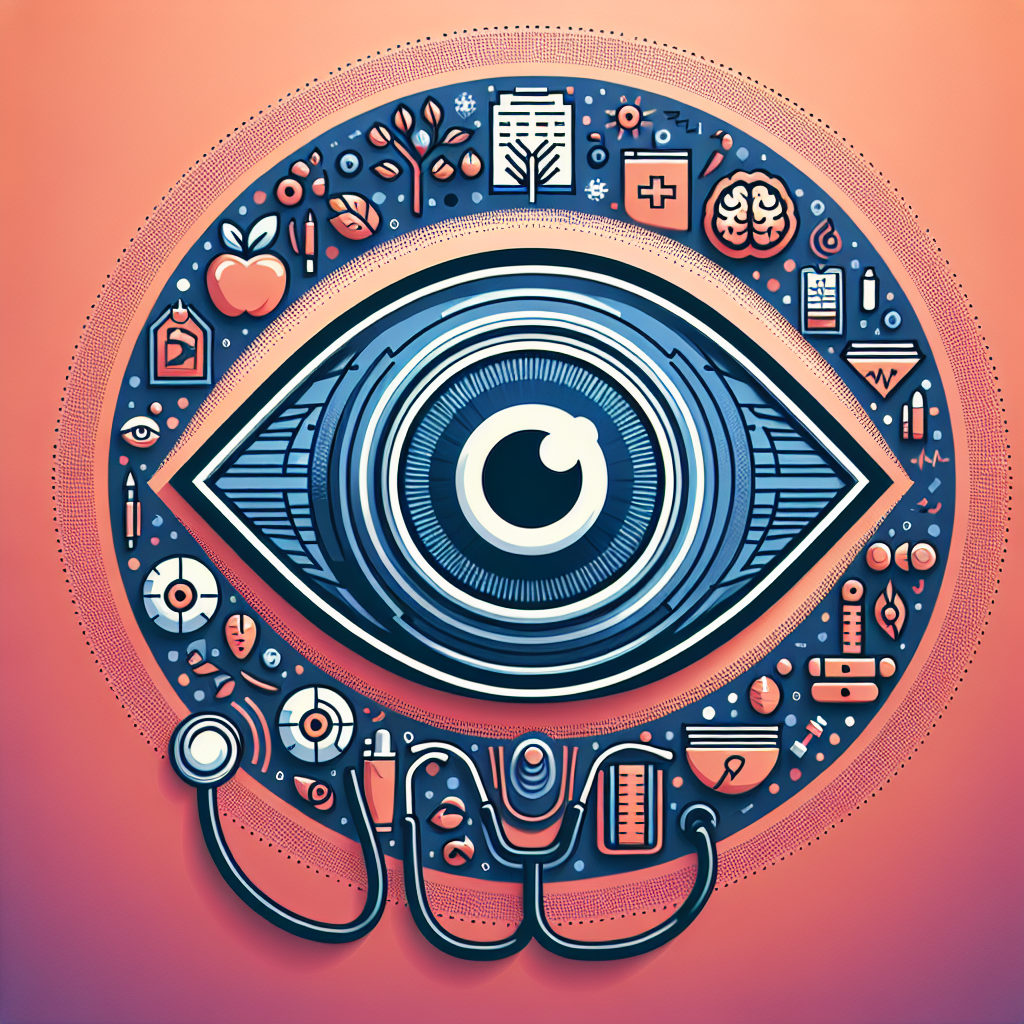The Importance of Regular Vision Checks for Overall Health
Vision is one of the most important senses, enabling us to interact with our environment, perform daily tasks, and enjoy life’s experiences. However, many people underestimate the importance of regular vision checks, which play a crucial role in maintaining not only eye health but overall well-being. This article delves into the significance of regular vision checks, the potential health issues they can uncover, and answers some frequently asked questions.
The Vital Role of Vision in Daily Life
Vision is integral to almost everything we do. From reading and driving to recognizing faces and navigating spaces, our eyes are constantly at work. Good vision enhances our quality of life, helps us stay safe, and allows us to be productive. Unfortunately, vision can deteriorate gradually, making it easy to miss early signs of problems.
Benefits of Regular Vision Checks
Early Detection of Eye Conditions
Regular vision checks can help detect eye conditions such as glaucoma, cataracts, macular degeneration, and diabetic retinopathy early. Many of these conditions develop without noticeable symptoms and can lead to permanent vision loss if not treated promptly. Early detection through routine eye exams can significantly improve the chances of preserving vision.
Overall Health Monitoring
Eye exams can also reveal signs of systemic health issues. Conditions like diabetes, high blood pressure, high cholesterol, and even some cancers can manifest in the eyes. For example, diabetic retinopathy is a complication of diabetes that affects the blood vessels in the retina. An eye doctor (optometrist or ophthalmologist) can identify these signs, potentially leading to early diagnosis and intervention of underlying health problems.
Improved Quality of Life
Correcting vision problems with glasses, contact lenses, or surgery can significantly improve one’s quality of life. Clear vision reduces the risk of accidents, enhances the ability to perform daily tasks, and can even relieve headaches and eye strain caused by uncorrected vision problems.
Who Should Get Regular Vision Checks?
Children
Children should have their first eye exam at around six months of age, another at three years old, and again before starting school. Early detection of vision problems is crucial for proper development. Children with undiagnosed vision issues may struggle academically and socially.
Adults
Adults should have a comprehensive eye exam every two years, even if they have no obvious vision problems. Those with a family history of eye disease, diabetes, or high blood pressure, or those who wear contact lenses, may need more frequent exams.
Seniors
As we age, the risk of eye diseases increases. Seniors over 60 should have annual eye exams to monitor for age-related conditions such as glaucoma, cataracts, and macular degeneration.
What to Expect During a Vision Check
A comprehensive eye exam includes several tests to evaluate different aspects of eye health and vision. These may include:
– Visual Acuity Test: Measures the clarity of your vision using an eye chart.
– Refraction Test: Determines your prescription for glasses or contact lenses.
– Slit-Lamp Exam: Uses a microscope to examine the structures of your eye.
– Tonometry: Measures the pressure inside your eye, important for detecting glaucoma.
– Retinal Examination: Assesses the health of the retina, blood vessels, and optic nerve.
Common Eye Conditions Detected by Regular Checks
Myopia (Nearsightedness)
Myopia is a common condition where distant objects appear blurry. It can be corrected with glasses, contact lenses, or refractive surgery.
Hyperopia (Farsightedness)
Hyperopia causes difficulty focusing on close objects. Like myopia, it can be corrected with corrective lenses or surgery.
Astigmatism
Astigmatism is caused by an irregularly shaped cornea leading to blurred vision. It is correctable with specialized lenses or surgery.
Presbyopia
Presbyopia is an age-related condition where the eye’s lens loses flexibility, making it difficult to focus on close objects. Reading glasses or multifocal lenses can help.
FAQs About Vision Checks
How often should I have my eyes checked?
– Answer: Adults should have an eye exam every two years or as recommended by their eye doctor. Children, seniors, and those with specific health conditions may require more frequent exams.
Can eye exams detect health issues other than vision problems?
– Answer: Yes, eye exams can reveal signs of systemic conditions such as diabetes, high blood pressure, and high cholesterol. An eye doctor can identify abnormalities that may warrant further investigation by a primary care physician.
What are the symptoms of a serious eye problem?
– Answer: Symptoms such as sudden vision loss, persistent eye pain, flashes of light, floaters, or severe redness and swelling should prompt immediate medical attention. These could be signs of serious eye conditions that require urgent care.
Are online eye tests reliable?
– Answer: Online eye tests can be convenient for updating prescriptions but should not replace comprehensive eye exams. Online tests do not evaluate overall eye health and cannot detect many serious conditions.
Can vision problems be prevented?
– Answer: While not all vision problems can be prevented, maintaining a healthy lifestyle, protecting your eyes from UV light, and having regular eye exams can help preserve eye health and detect issues early.
Conclusion
Regular vision checks are essential for maintaining good eye health and overall well-being. They enable early detection of eye conditions and systemic health issues, improve the quality of life, and provide the opportunity for timely intervention. Regardless of age or health status, incorporating routine eye exams into your healthcare regimen is a wise and beneficial practice. Remember, preserving your vision means safeguarding your gateway to the world.

